Recent Blog Posts
What Defenses Are Used in Maryland Rape Cases?
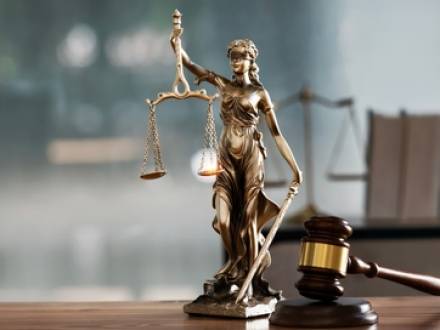 Rape cases in Maryland are defended by carefully reviewing the facts and the evidence. There is no single defense that applies to every case. Each situation depends on what happened, how the investigation was handled, and whether the state can meet its burden of proof.
Rape cases in Maryland are defended by carefully reviewing the facts and the evidence. There is no single defense that applies to every case. Each situation depends on what happened, how the investigation was handled, and whether the state can meet its burden of proof.
These cases are often emotionally difficult. According to national crime data released by the FBI in 2025, a rape is reported in the United States about every four minutes, and allegations alone can have devastating consequences.
If you are facing an accusation in 2026, speaking with our Anne Arundel County, MD rape defense lawyers early can help protect your rights and ensure the process is handled correctly.
What Factors Affect How Quickly a Driver’s BAC Level Rises?
 Having "just a couple drinks" means different things for different people. This is why the measure of blood alcohol concentration (BAC) exists. If you are accused of drunk driving in Maryland, your BAC could play a critical role in your defense.
Having "just a couple drinks" means different things for different people. This is why the measure of blood alcohol concentration (BAC) exists. If you are accused of drunk driving in Maryland, your BAC could play a critical role in your defense.
When someone drinks alcohol, the alcohol is absorbed into the wall of the small intestine and then travels throughout the rest of the body through the bloodstream. A person’s blood alcohol content level is the weight of the alcohol in comparison to the overall volume of blood. If your BAC level is above the legal limit and you decide to drive, you may face charges for driving under the influence of alcohol.
At the Law Offices of Murphy & Price LLP, our Ocean City, MD criminal defense lawyers can review blood and breath tests and build a case to fight the charges against you. We are available 24/7 for our clients, so you can trust us to stand at your side early in a DUI case.
Challenging a Drug Possession Charge in Maryland
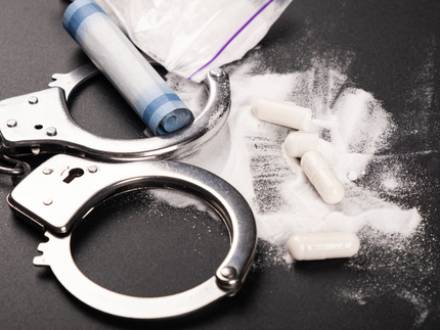 If you are accused of carrying even a small quantity of an illicit substance, it could have serious implications for your future. Depending on the offense, a conviction could come with thousands of dollars in fines and a long prison sentence. For charges involving possession with the intent to distribute, you face even stricter penalties under Maryland law. With the help of an Annapolis, MD drug crime defense lawyer, you can contest allegations of drug possession in court.
If you are accused of carrying even a small quantity of an illicit substance, it could have serious implications for your future. Depending on the offense, a conviction could come with thousands of dollars in fines and a long prison sentence. For charges involving possession with the intent to distribute, you face even stricter penalties under Maryland law. With the help of an Annapolis, MD drug crime defense lawyer, you can contest allegations of drug possession in court.
At the Law Offices of Murphy & Price LLP, our attorneys have experience as former state prosecutors, giving us keen insights into defending against misdemeanor and felony charges. We will explore all possible avenues to help you avoid a conviction or reduce the penalties of a possession charge.
What Are My Constitutional Rights in a Drug Possession Case?
One of the most common defenses in drug crime cases is citing a breach of constitutional rights. The Fourth Amendment of the United States Constitution protects you from unreasonable search and seizure, which applies to drug cases when law enforcement officers overstep their bounds to obtain evidence. For example, if your house was searched without a warrant or probable cause, the search itself could be illegal.
What You Should Know About a Dishonorable Discharge
 As a member of the military, one of the most serious threats you can face is a dishonorable discharge. If you are at risk of losing your military benefits and facing professional disgrace, an Ocean City, MD military criminal defense lawyer can protect your rights and help work toward an optimal outcome.
As a member of the military, one of the most serious threats you can face is a dishonorable discharge. If you are at risk of losing your military benefits and facing professional disgrace, an Ocean City, MD military criminal defense lawyer can protect your rights and help work toward an optimal outcome.
At Law Offices of Murphy & Price LLP, we have extensive experience handling military criminal defense cases, including cases involving serious allegations. Our firm can help you fight charges that could lead to a dishonorable discharge or seek a discharge upgrade on your behalf to restore your reputation. We work with a network of subject matter experts and investigators, so you can rest assured that we will do everything we can to protect you.
Types of Military Discharges
There are different types of military discharges carrying positive and negative connotations. The best kind of discharge is an honorable discharge, which is granted when a servicemember fulfills his or her duty and meets the required standards of conduct. Lower discharges may result in the loss of certain benefits or rights, which is why you should take any allegations of criminal misconduct seriously.
How Is Prostitution Prosecuted in Maryland?
 An allegation of prostitution carries criminal penalties as well as a harsh stigma. If you have been accused of illegal sex work or soliciting a prostitute, you may have some real concerns about the possible consequences of a conviction. Faced with a prostitution charge, the best thing you can do is to seek legal representation.
An allegation of prostitution carries criminal penalties as well as a harsh stigma. If you have been accused of illegal sex work or soliciting a prostitute, you may have some real concerns about the possible consequences of a conviction. Faced with a prostitution charge, the best thing you can do is to seek legal representation.
At the Law Offices of Murphy & Price LLP, our Annapolis criminal defense lawyers have decades of experience defending clients against serious criminal charges, including sex crimes. We are available 24 hours a day, 7 days a week, so do not hesitate to reach out to us if you have been arrested for prostitution.
Are Prostitution and Solicitation the Same Crime?
Some states treat the act of prostitution and the act of soliciting a prostitute as separate crimes with different punishments. However, in Maryland, both crimes are punished under the same statute. The law states "a person may not knowingly procure or solicit or offer to procure or solicit prostitution or assignation" (Maryland Criminal Law §11–306).
Are Field Sobriety Tests Accurate?
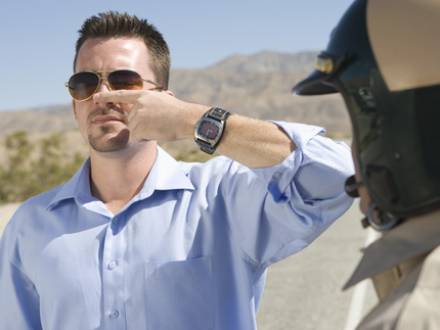 Field sobriety tests (FSTs) are frequently used by police at traffic stops to determine if somebody is drunk. These tests are subjective and often not reliable indicators of intoxication, but they can be used as evidence against you in a DUI charge.
Field sobriety tests (FSTs) are frequently used by police at traffic stops to determine if somebody is drunk. These tests are subjective and often not reliable indicators of intoxication, but they can be used as evidence against you in a DUI charge.
Getting convicted of DUI can result in significant jail time and the loss of your driving privileges. As such, it is important that you challenge every piece of evidence the prosecution brings forward. At the Law Offices of Murphy & Price LLP, our lawyers have more than 50 years of shared experience, so you can rest assured that your case will be handled by a team of highly qualified attorneys. If you have been arrested for DUI, an Ocean City, MD criminal defense lawyer can question the results of your field sobriety tests.
Road Conditions Can Affect Field Sobriety Tests
Standardized field sobriety tests are not always able to account for volatile conditions on the road. Poor visibility, badly maintained roads, and adverse weather conditions can all impact your performance on a field sobriety test. Being asked to stand on one leg on a freezing cold night, for instance, may be difficult even for a sober driver.
What Not to Do as a Defendant in a Criminal Case
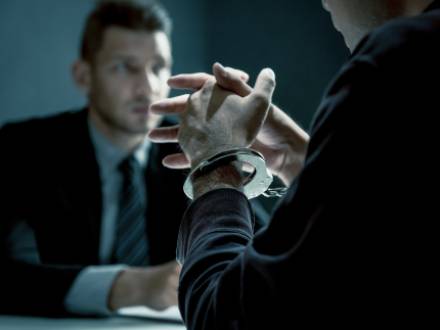 If you have been accused of committing a crime, your first reaction might be to panic. Nobody wants to consider the long-term implications of a conviction, especially if jail time is a possibility. When under pressure, defendants are more likely to make simple mistakes that end up hurting their cases. Fighting a charge of a misdemeanor or felony offense is not easy, but having a skilled Annapolis, MD criminal defense lawyer at your side can serve as invaluable protection.
If you have been accused of committing a crime, your first reaction might be to panic. Nobody wants to consider the long-term implications of a conviction, especially if jail time is a possibility. When under pressure, defendants are more likely to make simple mistakes that end up hurting their cases. Fighting a charge of a misdemeanor or felony offense is not easy, but having a skilled Annapolis, MD criminal defense lawyer at your side can serve as invaluable protection.
At the Law Offices of Murphy & Price LLP, we have helped numerous clients out of bad situations. Our legal team includes former prosecutors who are highly familiar with how criminal charges are handled in court. We can advise you of what not to do during your case to safeguard your best interests.
Mistake #1 - Failing to Exercise the Fifth Amendment
Most people tend to see themselves as being in the right. As such, it is only natural to want to explain yourself to the police and clear up any misunderstandings. However, despite your good intentions, this could harm your case more than it helps. Any information you volunteer to the police could be relayed to the prosecutor and used against you in court.
Can I Be Charged With Drunk Driving Below the Legal Limit?
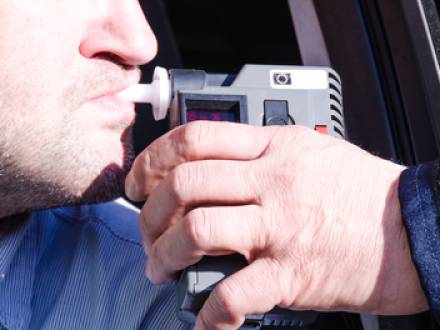 You might already be familiar with the concept of the "legal limit" when it comes to drunk driving offenses. Under Maryland law, you can be charged with driving under the influence (DUI) if you are pulled over and detained with a blood alcohol concentration (BAC) of at least .08 percent. This may lead you to think that as long as your BAC is below the legal limit, you cannot be charged with a drunk driving offense. However, this is far from the truth. If you have been arrested on drunk driving charges, a Maryland DUI/DWI defense attorney can help.
You might already be familiar with the concept of the "legal limit" when it comes to drunk driving offenses. Under Maryland law, you can be charged with driving under the influence (DUI) if you are pulled over and detained with a blood alcohol concentration (BAC) of at least .08 percent. This may lead you to think that as long as your BAC is below the legal limit, you cannot be charged with a drunk driving offense. However, this is far from the truth. If you have been arrested on drunk driving charges, a Maryland DUI/DWI defense attorney can help.
A conviction of DUI or DWI can have major implications for your future, impacting your permanent record as well as your driving privileges. At Law Offices of Murphy & Price LLP, our attorneys can fight for you in court and work toward an optimal outcome on your behalf.
What Is the Difference Between DUI and DWI?
While it is true that a BAC of .08 percent is the threshold for DUI charges, you can still be charged if you are below the legal limit under certain circumstances. In Maryland, the lesser charge of driving while impaired (DWI) exists to prosecute drivers whose BAC is below .08. Oftentimes, drivers are charged with DWI at a BAC of more than .07 percent but less than .08.
Possible Defenses Against a Theft Charge in Maryland
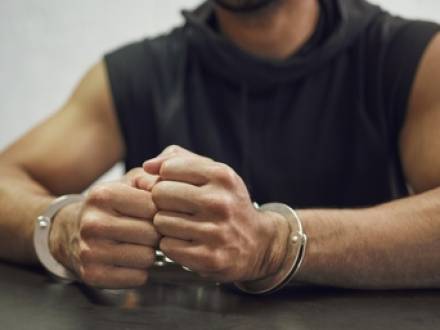 If you have been accused of theft, you could face several penalties, including fines, jail time, and a long-term criminal record. The damaging effects of a conviction should not be brushed off, as it could restrict your future employment opportunities. By working with a Maryland criminal defense lawyer, you can explore your options for contesting the charge in court.
If you have been accused of theft, you could face several penalties, including fines, jail time, and a long-term criminal record. The damaging effects of a conviction should not be brushed off, as it could restrict your future employment opportunities. By working with a Maryland criminal defense lawyer, you can explore your options for contesting the charge in court.
At the Law Offices of Murphy & Price LLP, we have experience representing clients in a variety of criminal cases, including theft charges. Our team of defense attorneys includes former prosecutors who can effectively strategize for your case. We will do everything we can to protect you against allegations of theft, seeking reduced or dismissed charges.
Theft Charges and the Intent to Deprive
In a theft case, the prosecution must prove that you purposely tried to deprive someone else of property. This could mean hiding the property from the owner or using it in such a way that the owner is unlikely to get it back.
The Most Common Reasons Criminal Charges Get Dismissed
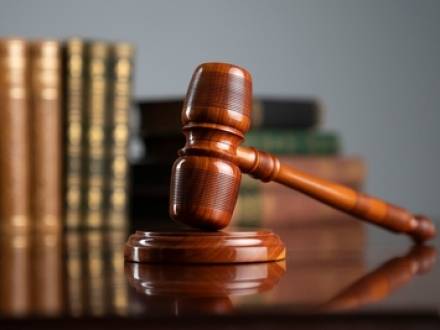 Getting arrested is not the same as being convicted of a crime. In fact, there are several reasons why a charge might end up getting dismissed before the judge ever gives a verdict. If you have been arrested for a criminal offense, a Maryland defense attorney can review your case and pursue the best possible outcome on your behalf.
Getting arrested is not the same as being convicted of a crime. In fact, there are several reasons why a charge might end up getting dismissed before the judge ever gives a verdict. If you have been arrested for a criminal offense, a Maryland defense attorney can review your case and pursue the best possible outcome on your behalf.
Oftentimes, getting the charges against you dismissed is the most favorable resolution to a case. At the Law Offices of Murphy & Price LLP, our attorneys have served as former state prosecutors, so we know how to effectively navigate a criminal charge in court. When you work with our firm, we will explore all possible strategies to protect your best interests.
Errors in Law Enforcement Procedure
Sometimes, a simple mistake in law enforcement procedure is all it takes to spoil the prosecution’s case. One of the most common errors committed by police officers is a violation of probable cause. If you were searched or arrested without evidence to suggest a crime was committed, you might have an avenue to get the charges against you dismissed.





